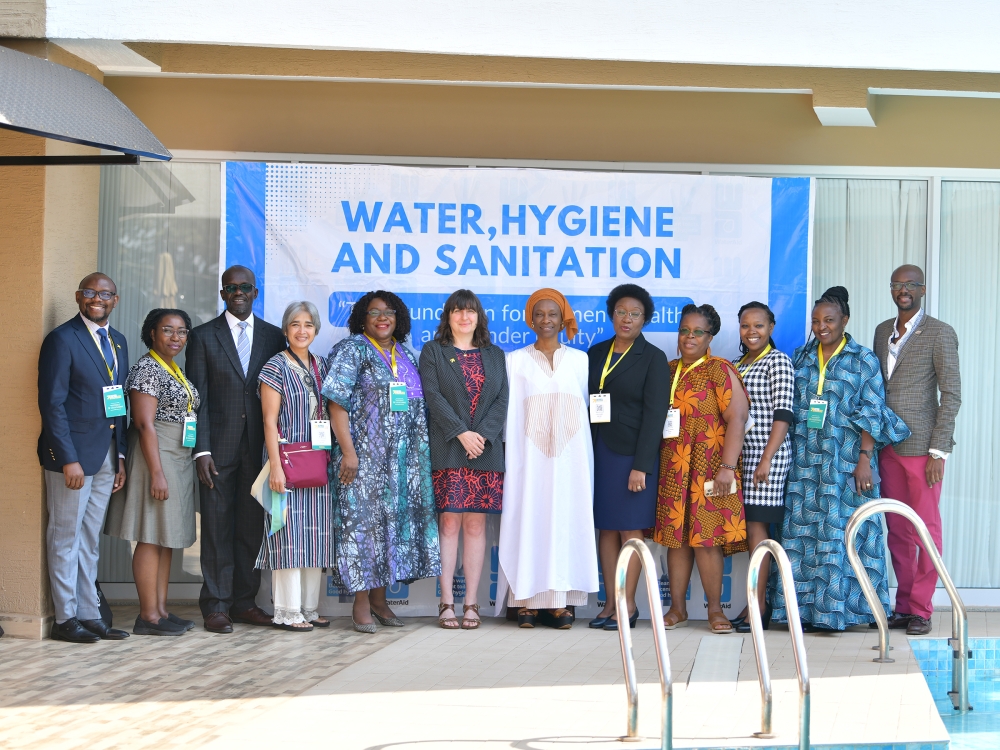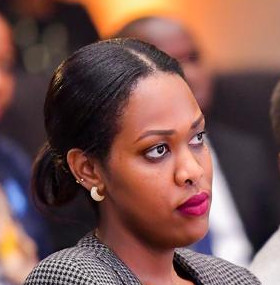

The global fight for gender equality will be lost without the basics of clean water, sanitation, and hygiene (WASH), according to health experts and activists.
This was emphasised at a sideline event of the Women Deliver Conference, on July 19, which brought together leaders and influencers in the fields of WASH, health, and women’s rights to share insights, experiences, and expertise on key opportunities, gaps, and drivers pertaining to these crucial areas.
Globally, women and girls, especially from rural and indigenous communities, experience significant limitations in access to water, sanitation, and hygiene and this is a key contributor to gender inequality.
It is estimated that at least 2.2 billion people in the world do not have safe and available drinking water at home, while 3.5 billion people do not have a safe toilet at home, and more than 395,000 deaths of children under five years occur every year from diarrhoeal diseases caused by lack of clean water, sanitation, and hygiene.


On the other hand, it is worth noting that investing in safely managed water, sanitation, and hygiene services provides up to 21 times more value than it costs.
ALSO READ: WaterAid to mobilize Rwf20 billion in water and sanitation projects in Rwanda
Olutayo Bankole-Bolawe, WaterAid’s Regional Director for East Africa, said people often focus on education, economic opportunities, and political representation when thinking of gender equality, which are all very essential components of a just society most definitely, however, they should not overlook the undeniable impact WASH has in achieving gender equality.
"The new report by the World Health Organization and UNICEF Joint Monitoring Program throws this reality into stark relief, showing how seriously impacted women and girls are by the lack of water and sanitation at home and offering a sobering reminder that progress is moving too slowly,” she added.
According to her, this will only get worse unless countries and donors massively increase their investment and support, particularly where progress is low and in areas most impacted by climate change.
"The intersectionality of WASH and sexual and reproductive health is pivotal to achieving comprehensive and gender response health care. By prioritising the improvement of WASH access and practices in health care facilities, we can create an environment where women can receive safe and dignified care during childbirth, reducing the risk of post-natal infections and ultimately saving lives.”
ALSO READ: How two women entrepreneurs strive to meet Rwanda’s general access to clean water deadline
Sharing her experience in the health sector as a trainer of midwives, Angela Nguku, the founder of White Ribbon Alliance, detailed the painful experiences that women in underserved societies go through at health facilities because of not accessing clean water, including the extreme lack of hygiene at these facilities which presents more risks of infections rather than treatment.
She highlighted that gender issues are only one area and went on to say that water is a development, political, human rights, social, and economic issue.
According to her, this is not a time of making commitments but rather complying and taking urgent actions, "As we are talking, women and new-borns are dying. We are talking about economic empowerment; how can you empower a woman who is busy fetching water for three hours or four from somewhere? How is she going to go to school and compete in the same platforms as the rest?”
ALSO READ: Move from commitments to actions in bridging gender gaps –Kagame
Aissa Toure Sarr, Country Manager for African Development Bank, said that while governments are taking steps towards addressing the issue of WASH in communities, the problem is not necessarily financing but understanding the magnitude of the problem and areas that need direct investments.
She added that understanding the interconnectedness of pushing all the Sustainable Development Goals (SDGs) at an urgent pace requires a holistic approach and that involving the private sector through blended finance is crucial to address the matters of concern.
Started in 1981, WaterAid works in 27 countries to change the lives of the poorest and most marginalised people, and it has reached 27.8 million people with good hygiene, 28.5 million people with clean water, and 29 million people with decent toilets.


